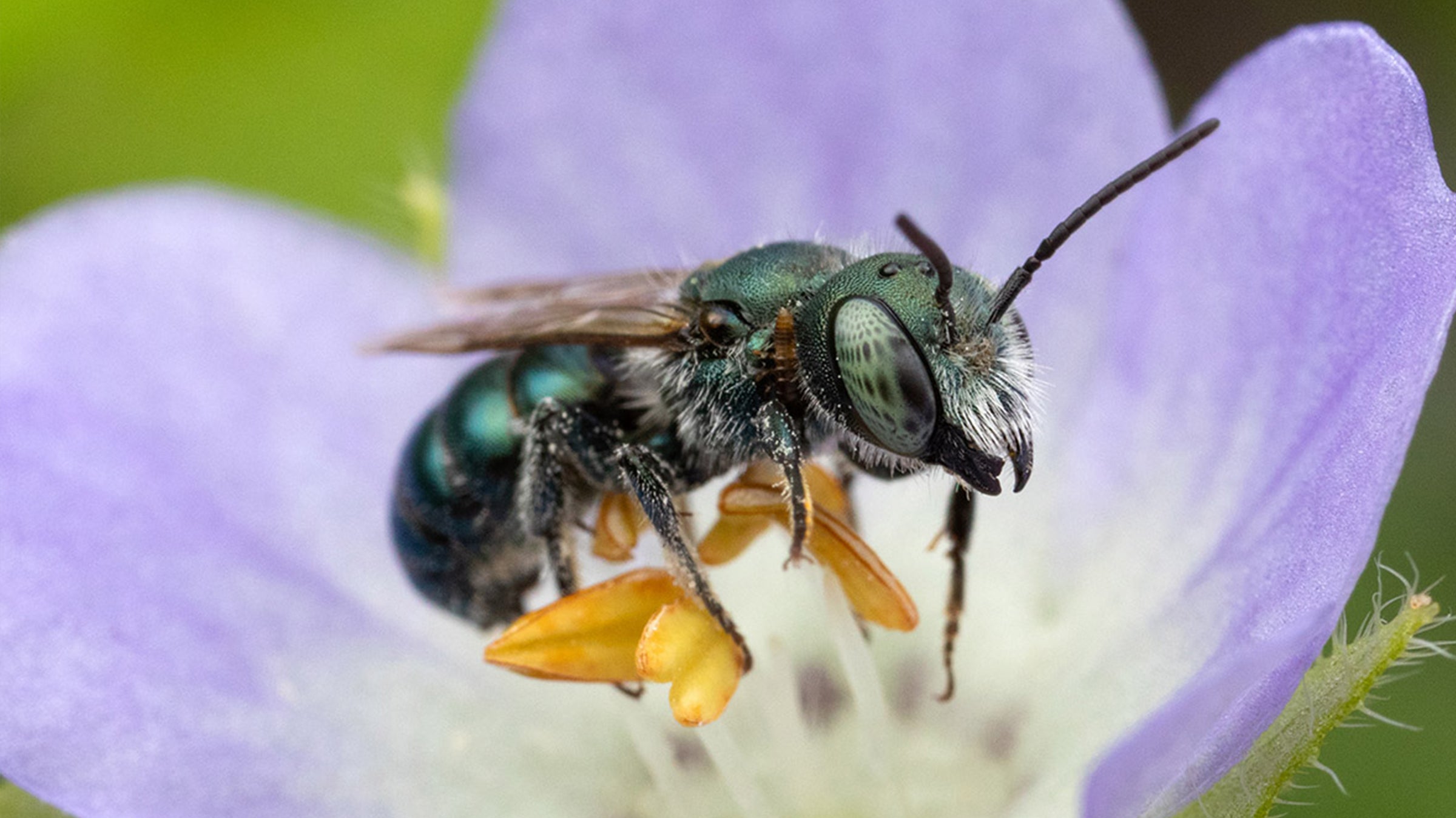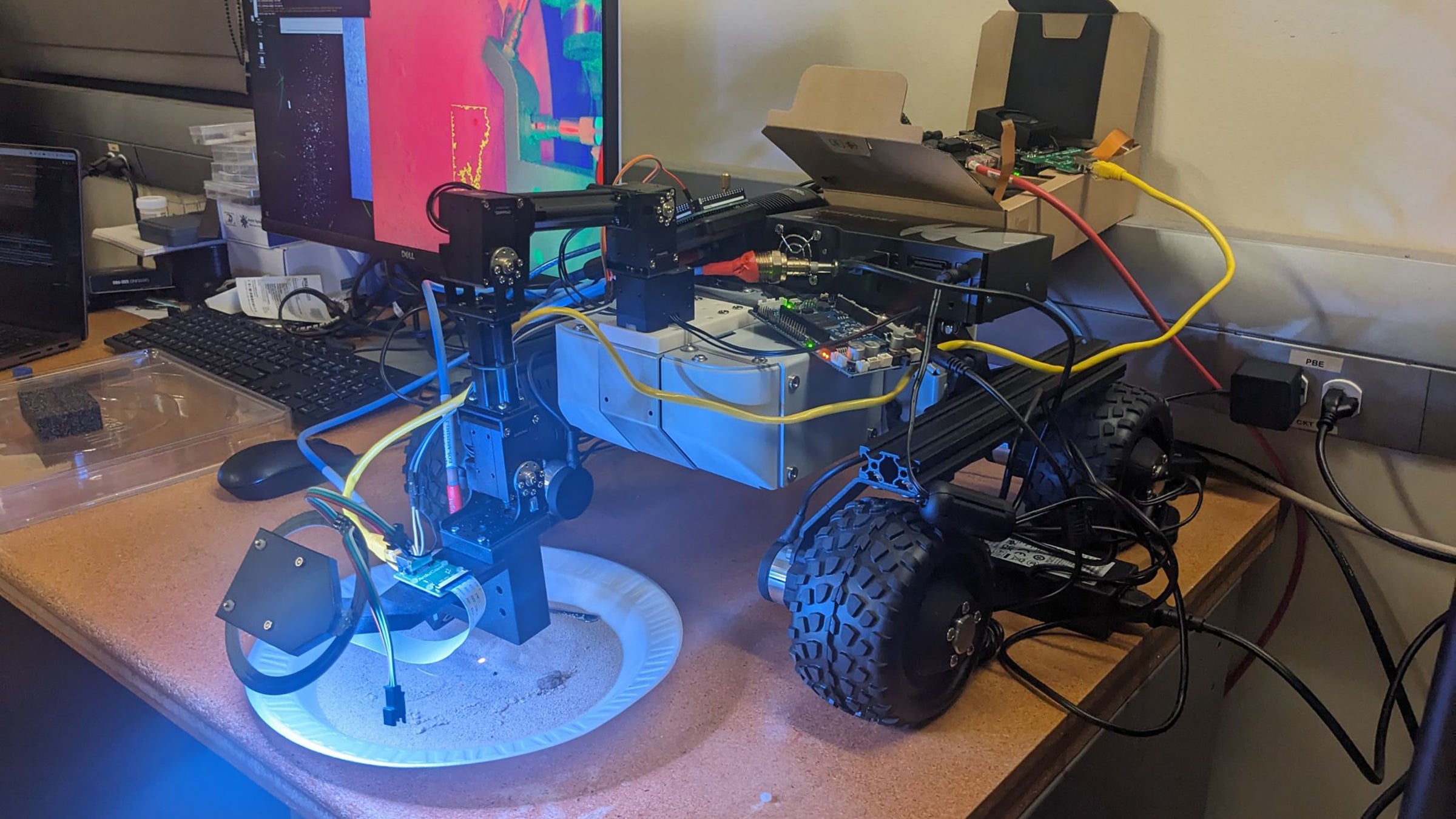
Rainbow dung beetle Phanaeus difformis with a constructed brood ball.
Let’s face it. There is something comedic and even circus-like when watching a dung beetle roll a ball of poop across a cattle ranch. But beyond the giggles, these beneficial insects provide a lot of important ecological services. What better place to study them than here in the Lone Star State with its vast ranches where they remove 80 percent of cattle droppings?
In fact, they are one of the animal groups being studied by the lab of Dr. Amanda Koltz. The aim of this research is to understand how soil biodiversity can be used to help maximize plant and livestock production while also mitigating effects of climate change. Post-doc Katie Harris uses dung beetles as a study subject within this context.
Katie took some time out of her busy research schedule to talk to us about the work she is doing with dung beetles.
First, can you give us a little deeper explanation of what dung beetles are exactly?
Dung beetles are primarily coprophagous (poop-eating) insects in the family Scarabaeidae. Adult dung beetles will consume the easier-to-eat liquid slurry of dung, while larval beetles have tougher, sclerotized, mouthparts that allow them to handle more fibrous parts of the dung. Dung beetles are often classified into three major groups: rollers, tunnelers and dwellers. Rollers are the beetles most people recognize as dung beetles because they take the dung and roll it into a ball to transport it away from the original dung pile. Dwellers remain in the dung to eat and reproduce, while tunnelers will dig deep tunnels underneath the dung pile to create brood balls and store food for later use.
How do they figure into your research focus?
The Koltz lab studies how biological communities respond and adapt to environmental change. My current research utilizes dung beetles as a model organism to investigate the effects of climate change on soil organisms and the ecosystem services they provide.
What kind of ecological services do they provide?
Dung beetles, particularly tunnelers, are ecologically significant by aiding in nutrient cycling, soil aeration and the reduction of parasites. Without dung beetles, feces would build up on the soil surface. The act of burying the dung aids in plant growth by making nutrients like nitrogen and phosphorus available as well as aerating the soil to allow for root growth. Additionally, dung burial helps suppress parasites (such as parasitic worms and flies) that infect cattle and other large mammals as well as reduces greenhouse gas emissions from the dung.

Brood ball from rainbow dung beetle (Genus: Phanaeus). Brood balls are constructed by female beetles with the purpose of provisioning food for their young. One egg is laid in each brood ball and the larvae will develop inside until they emerge as adults.
How is a warming planet affecting them?
Understanding how climate change will affect dung beetles and their ecosystem services is an active area of research. Warming in particular can affect these beetles’ phenology through altered emergence or activity times and potential geographical range shifts. Current research suggests that warming alters beetle tunneling behavior and reproduction, leading to females creating brood balls that are smaller, more numerous, and buried deeper than those under normal temperature conditions.
Since Texas is known for its vast cattle ranches, how can land owners assist your research?
We are excited to collaborate with local landowners! If landowners wanted to assist, we would greatly appreciate being able to collect fresh dung from local cows, pigs or bison. We would also benefit from the use of local sites with cattle or bison to sample dung beetles.
Our research requires dung from animals that have not been given anti-parasitic medication. Dung beetles can be sensitive to anti-parasitic medications like ivermectin. These medications can be toxic to dung beetles and have been found to affect their survival as well as their behavior and reproduction.
Can you also explain how landowners might benefit from the ecological services dung beetles provide?
Dung beetles provide important ecosystem services that directly benefit landowners. By burying dung, they reduce livestock pests and pathogens, which lowers infection rates in cattle and other animals. Not only do these hard-working insects remove dung on the soil surface which can inhibit plant growth, but dung beetles also improve plant health in pastures through nutrient cycling and aeration.
What contact info can you provide to ranchers wishing to contact you?
My email: katie.harris[at]austin.utexas.edu




